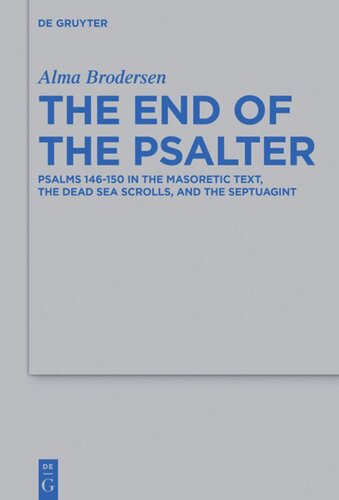

Most ebook files are in PDF format, so you can easily read them using various software such as Foxit Reader or directly on the Google Chrome browser.
Some ebook files are released by publishers in other formats such as .awz, .mobi, .epub, .fb2, etc. You may need to install specific software to read these formats on mobile/PC, such as Calibre.
Please read the tutorial at this link: https://ebookbell.com/faq
We offer FREE conversion to the popular formats you request; however, this may take some time. Therefore, right after payment, please email us, and we will try to provide the service as quickly as possible.
For some exceptional file formats or broken links (if any), please refrain from opening any disputes. Instead, email us first, and we will try to assist within a maximum of 6 hours.
EbookBell Team

5.0
70 reviewsPsalms 146-150, sometimes called “Final Hallel” or “Minor Hallel”, are often argued to have been written as a literary end of the Psalter. However, if sources other than the Hebrew Masoretic Text are taken into account, such an original unit of Psalms 146-150 has to be questioned.
“The End of the Psalter” presents new interpretations of Psalms 146-150 based on the oldest extant evidence: the Hebrew Masoretic Text, the Hebrew Dead Sea Scrolls, and the Greek Septuagint. Each Psalm is analysed separately in all three sources, complete with a translation and detailed comments on form, intertextuality, content, genre, and date. Comparisons of the individual Psalms and their intertextual references in the ancient sources highlight substantial differences between the transmitted texts.
The book concludes that Psalms 146-150 were at first separate texts which only in the Masoretic Text form the end of the Psalter. It thus stresses the importance of Psalms Exegesis before Psalter Exegesis, and argues for the inclusion of ancient sources beyond to the Masoretic Text to further our understanding of the Psalms.